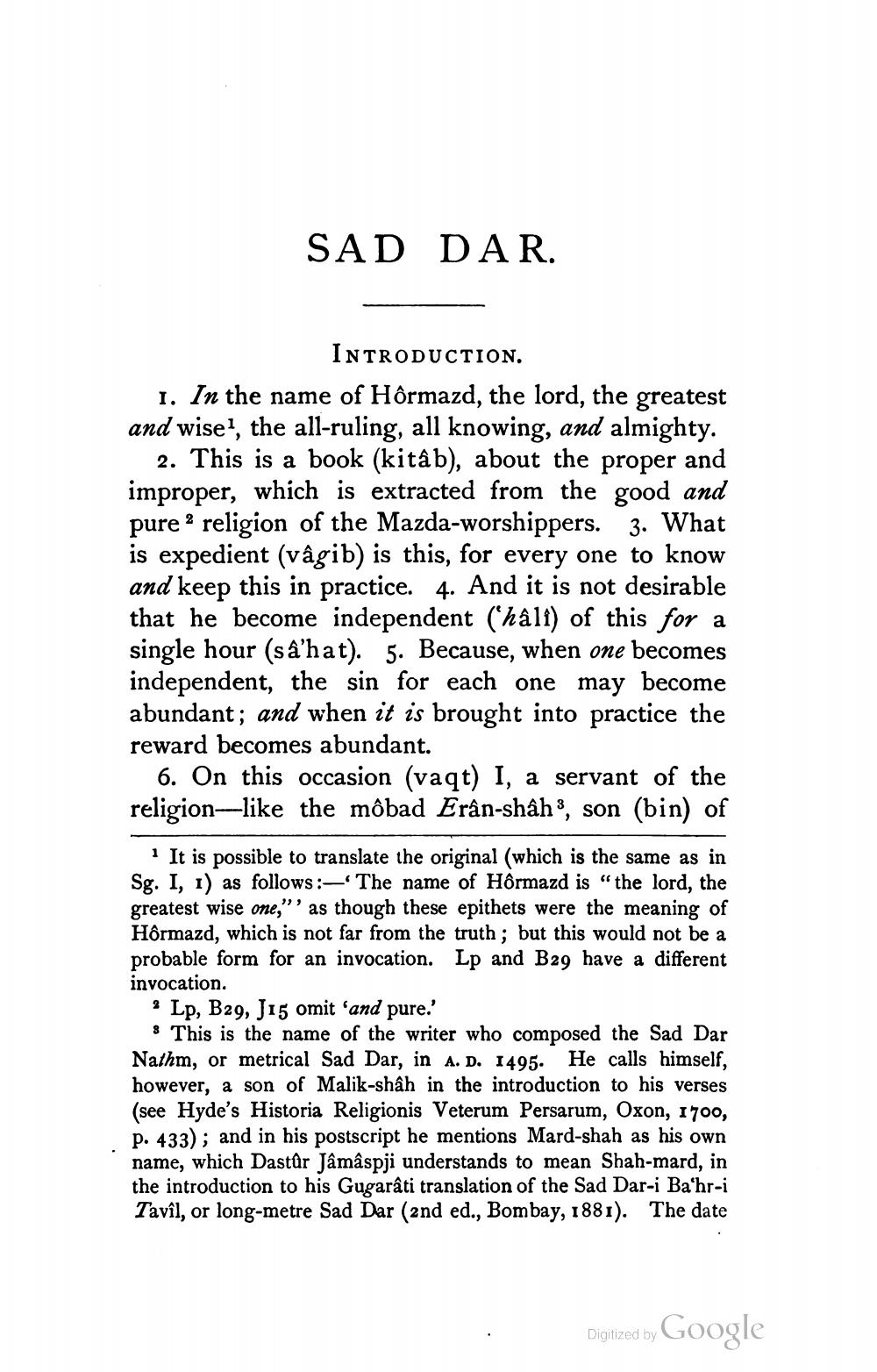________________
SAD DAR.
INTRODUCTION. 1. In the name of Hôrmazd, the lord, the greatest and wise", the all-ruling, all knowing, and almighty.
2. This is a book (kitâb), about the proper and improper, which is extracted from the good and pure religion of the Mazda-worshippers. 3. What is expedient (vâgib) is this, for every one to know and keep this in practice. 4. And it is not desirable that he become independent ('hâli) of this for a single hour (sâ'hat). 5. Because, when one becomes independent, the sin for each one may become abundant; and when it is brought into practice the reward becomes abundant.
6. On this occasion (vaqt) I, a servant of the religion-like the môbad Erân-shâh, son (bin) of
It is possible to translate the original (which is the same as in Sg. I, I) as follows:- The name of Hôrmazd is "the lord, the greatest wise one,'' as though these epithets were the meaning of Hôrmazd, which is not far from the truth; but this would not be a probable form for an invocation. Lp and B29 have a different invocation.
? Lp, B29, J15 omit 'and pure.'
8 This is the name of the writer who composed the Sad Dar Nathm, or metrical Sad Dar, in A. D. 1495. He calls himself, however, a son of Malik-shâh in the introduction to his verses (see Hyde's Historia Religionis Veterum Persarum, Oxon, 1700, p. 433); and in his postscript he mentions Mard-shah as his own name, which Dastûr Jâmâspji understands to mean Shah-mard, in the introduction to his Gugarâti translation of the Sad Dar-i Ba'hr-i Tavil, or long-metre Sad Dar (2nd ed., Bombay, 1881). The date
Digitized by
Digitized by Google




